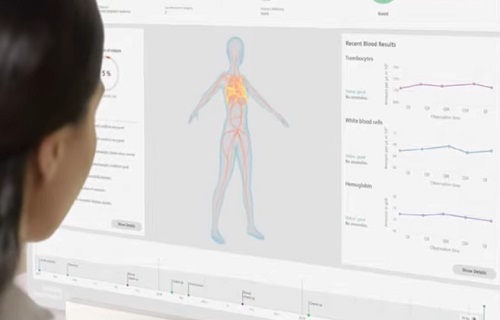What is Schizophrenia?
Schizophrenia is a long-term mental health condition that effects how a person thinks, feels and behaves. People with schizophrenia;
- Experience hallucinations (seeing or hearing things that aren’t real).
- Have delusions (false beliefs that aren’t based in reality).
- Struggle with disorganized thinking and difficulty concentrating.
- Show emotional flatness or withdrawal from others.
It generally develops in late teens or early adulthood and can be managed with treatment (including therapy and medication) but it requires ongoing care.
Statistics About Schizophrenia
Global Statistics Of Schizophrenia
- Prevalence: Schizophrenia effects about 1% of the global population.
- About 24 million people worldwide live with schizophrenia.
- Lifetime Risk: Lifetime risk of developing schizophrenia is about 1 in 222 people (0.45%).
- By Region:
- Europe: Prevalence is about 4.6 per 1,000 people.
- North America: Similar prevalence at around 4.0–6.0 per 1,000 people.
- Asia and Africa: Lower reported rates because of underdiagnosis so about 3.0 per 1,000 people.
Onset and Demographics
- Schizophrenia generally develops between the ages of 16 and 30.
- It effects men and women equally but men often develop symptoms earlier (late teens to early 20s) while women tend to develop symptoms in their late 20s to early 30s.
Impact and Disability Of Schizophrenia
- Schizophrenia is one of the top 15 causes of disability worldwide.
- Around 50% of people with schizophrenia experience significant difficulties in daily functioning.
- About 60-70% of people with schizophrenia experience social isolation and lack of social support.
- Employment rates for people with schizophrenia are between 10-30% globally.
Life Expectancy and Risk of Suicide Of Schizophrenia
- People with schizophrenia have a higher risk of suicide with about 5% dying by suicide and 20% attempting suicide at some point.
- People with schizophrenia live 10-20 years less than the general population.They are more likely to have co-occurring health conditions;
- Cardiovascular disease (25-30% higher risk).
- Obesity and diabetes (40-50% higher prevalence).
- Substance abuse disorders effect about 50% of people with schizophrenia.
Treatment Gap Of Schizophrenia
- About 69% of people with schizophrenia worldwide don’t receive adequate mental health treatment.
- This treatment gap can be as high as 90% in low and middle income countries
- About 33% of all hospitalizations for mental health disorders involve schizophrenia.
- People with schizophrenia are 2-3 times more likely to visit emergency departments than the general population.
Economic and Social Impact Of Schizophrenia
- Schizophrenia is associated with high economic costs including healthcare expenses and lost productivity. Amounting to $155 billion annually in the U.S. alone.
- Many people with schizophrenia are unemployed; employment rates range from 10% to 20% in developed countries.
- Families of people with schizophrenia: About 50-80% of caregivers report significant emotional, financial and physical stress.
- Caregiving costs can represent 20-30% of household income in some regions.

What Are The 6 Early Symptoms Of Schizophrenia?
1. Behavioral Changes Of Schizophrenia
- Withdrawal from social activities: Avoiding friends, family or social gatherings.
- Loss of interest in hobbies or activities previously enjoyed.
- Decline in daily functioning: Difficulty managing responsibilities like work or school.
2. Cognitive Symptoms Of Schizophrenia
- Difficulty concentrating: Struggling to focus on tasks or conversations.
- Indecisiveness or confusion: Finding it hard to make decisions or follow a train of thought.
- Memory issues or forgetfulness.
3. Emotional Symptoms Of Schizophrenia
- Mood changes: Unexplained irritability, sadnes or anxiety.
- Flat or inappropriate emotions: Showing little emotion or reacting in ways that don’t fit the situation.
4. Perceptual Changes Of Schizophrenia
- Suspiciousness or paranoia: Feeling overly distrustful of others without reason.
- Distorted perceptions: Seeing, hearing or feeling things that aren’t real (e.g., mild hallucinations).
5. Physical Symptoms Of Schizophrenia
- Sleep disturbances: Difficulty falling or staying asleep or unusual sleep patterns.
- Lack of energy: Persistent fatigue or low motivation.
6. Speech and Thought Changes Of Schizophrenia
- Unusual thoughts or beliefs: Developing odd ideas or magical thinking (believing in things that defy logic).
- Speech difficulties: Talking less or speaking in a disorganized way that’s hard to follow.
What Are The Causes Of Schizophrenia?
1. Genetic Factors
- Schizophrenia often runs in families so suggesting a strong genetic component.
- If a first degree relative (e.g., parent or sibling) has schizophrenia, the risk increases to about 10% (compared to 1% in the general population).
- Identical twins have a 40-50% chance of both having the disorder if one twin is diagnosed.
2. Brain Chemistry and Neurotransmitters
- Imbalances in brain chemicals especially dopamine and glutamate are associated with schizophrenia.
- Excessive dopamine activity in certain brain regions can cause to psychotic symptoms like hallucinations and delusions.
3. Brain Structure and Function
- Structural abnormalities in the brain;
- Enlarged ventricles (fluid-filled spaces).
- Reduced gray matter in specific regions (e.g., the hippocampus, frontal lobe).
- Abnormal brain connectivity and activity patterns.
4. Prenatal and Birth Factors
- Complications during pregnancy or birth could increase the risk.
- Prenatal infections (e.g., influenza, toxoplasmosis).
- Malnutrition during pregnancy.
- Low birth weight or oxygen deprivation at birth.
5. Environmental Triggers
- Stressful life events: Traumatic experiences, abuse or significant life changes may act as triggers in genetically predisposed people.
- Urban living: Growing up in densely populated urban areas has been linked to a higher risk of schizophrenia.
6. Substance Use
- Use of psychoactive drugs (especially during adolescence or early adulthood) may increase the risk.
- Cannabis: Heavy or early use is associated with a higher likelihood of developing schizophrenia particularly in genetically vulnerable people.
- Stimulants (e.g., amphetamines) and hallucinogens (e.g., LSD) may worsen symptoms.
7. Immune System Dysregulation
- Inflammation or overactivity of the immune system has been linked to schizophrenia.
- Autoimmune diseases or infections may play a role.
8. Multifactorial Nature
Schizophrenia is thought to result from an interplay between these factors. For instance, a person with a genetic predisposition might not develop schizophrenia unless exposed to environmental triggers or stressors.

What Are The Treatment Options Of Schizophrenia?
1. Drugs For Schizophrenia
- Antipsychotic drugs are the cornerstone of treatment. They help reduce or eliminate symptoms like hallucinations and delusions.
- Examples: Clopixol, Lumateperone, Risperidone, Olanzapine, Clozapine, Aripiprazole.
- Long-acting injectable antipsychotics: Useful for people who have difficulty taking daily pills (e.g., Haloperidol Decanoate, Paliperidone).
- You can find healthy usage and side effects of Clozapine in below:
2. Psychotherapy For Schizophrenia
- Cognitive Behavioral Therapy (CBT): Helps people recognize and challenge delusional beliefs or distorted thinking.
- Cognitive Remediation Therapy (CRT): Focuses on improving memory, attention and problem-solving skills.
- Family Therapy: Educates families about the disorder and enhances communication and support.
3. Psychosocial Interventions For Schizophrenia
- Social skills training: Helps improve interpersonal relationships and day to day functioning.
- Supported employment programs: Assist people in finding and maintaining jobs.
- Rehabilitation programs: Teach skills for independent living and coping with daily challenges.
4. Hospitalization
- May be necessary during severe episodes to provide safety and provide intensive care.
- Short term stays help stabilize people experiencing psychotic episodes.
5. Lifestyle and Support For Schizophrenia
- Healthy lifestyle changes: Regular exercise, balanced diet and adequate sleep.
- Support groups: Joining groups for people with schizophrenia or their families can provide understanding and encouragement.
- Stress management: Mindfulness, yoga and relaxation techniques to reduce stress triggers.
6. Electroconvulsive Therapy (ECT) For Schizophrenia
- Used in rare cases where medication and psychotherapy have not been effective. Especially for severe symptoms like catatonia.
7. Community and Case Management Services
- Assertive Community Treatment (ACT): A team based approach providing comprehensive support in daily living.
- Housing programs: Help people find stable and supportive living environments.
8. Emerging Therapies
- Transcranial Magnetic Stimulation (TMS): Being explored for treating auditory hallucinations.
- Digital tools: Smartphone apps for symptom tracking and medication reminders.
10 Advices Against Schizophrenia
1. Early Detection and Treatment
- Seek help early: Recognizing early signs (social withdrawal, mood changes, unusual thoughts) and consulting a healthcare professional promptly can improve outcomes.
- Follow treatment plans: Consistently taking prescribed medication and attending therapy is crucial to managing symptoms.
2. Maintain a Healthy Lifestyle
- Regular exercise: Physical activity can improve mood and reduce stress. Aim for at least 30 minutes most days.
- Balanced diet: A nutrient rich diet supports brain health. Focus on fruits, vegetables, whole grains and omega-3 fatty acids.
- Adequate sleep: Establish a regular sleep schedule to avoid sleep deprivation.
3. Avoid Substance Use
- Steer clear of drugs and alcohol: Substances like cannabis, stimulants and hallucinogens can trigger or worsen schizophrenia symptoms.
4. Build a Support Network
- Stay connected: Maintain relationships with family and friends for emotional support.
- Join support groups: Connecting with others who have similar experiences can reduce feelings of isolation and provide helpful coping strategies.
5. Manage Stress
- Practice relaxation techniques: Meditation, deep breathing, yoga or mindfulness can help manage stress and prevent relapses.
- Time management: Break tasks into smaller and manageable steps to avoid overwhelming yourself.
6. Education and Awareness
- Learn about schizophrenia: Understanding the condition can help you identify symptoms, seek treatment and advocate for yourself or loved ones.
- Educate loved ones: Family members who understand schizophrenia can provide better support and avoid misunderstandings.
7. Fallow Your Therapy
- Cognitive Behavioral Therapy (CBT): Helps manage delusions, hallucinations and stress.
- Social skills training: Builds confidence in handling daily interactions.
8. Adhere to Medical Follow-Ups
- Regular check-ups: Periodic consultations with psychiatrists and mental health professionals help monitor progress and adjust treatment as needed.
- Medication adherence: Skipping doses may lead to relapses; long-acting injectables may be a good option for those struggling with daily medication.
9. Focus on Long-Term Goals
- Set realistic goals: Achieving small milestones (e.g., completing education, maintaining employment) can boost confidence.
- Plan for independence: Gradually work on skills for independent living such as budgeting or cooking.
10. Reduce Stigma
- Be open about mental health challenges and encourage discussions to break down stigma surrounding schizophrenia.
Key Advice: If you or someone you know has schizophrenia; remember that recovery is possible with the right support and treatment.
We wish healthy and happy life to you. You can find a helpful comparison about Schizophrenia medications from every angle to help you make the best decision about which is best for you.

